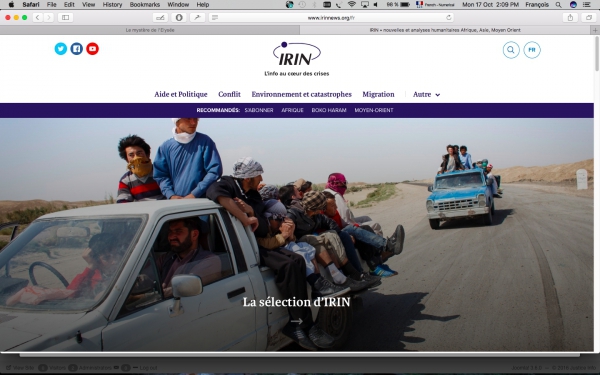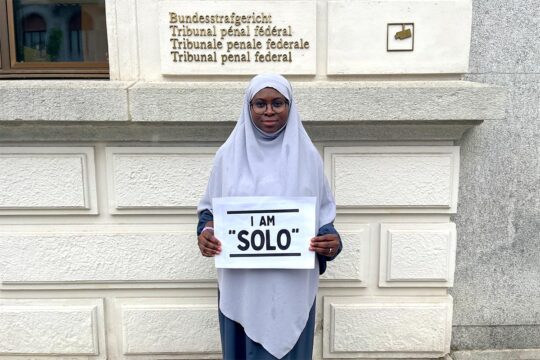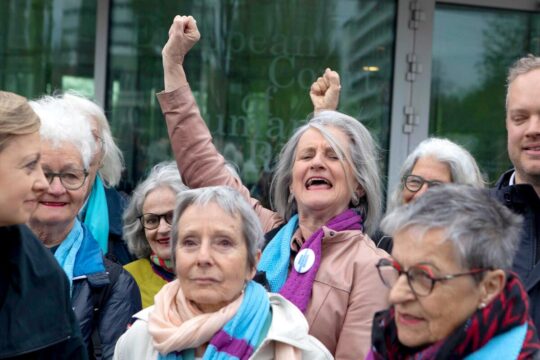Humanitarian news agency IRIN, which turned independent from the UN in 2015, opened a new office in Geneva on October 12. Since taking its independence, IRIN has had funding concerns, but has now been able to re-launch with support notably from the Swiss and Swedish governments and the Swiss Lottery (Loterie Romande). Focussing on humanitarian issues worldwide, IRIN sees its network of 200 correspondents, editors and analysts as an original asset to help “ shine a light on forgotten crises and to keep issues that are less sexy on the radar".
"We try to fill gaps that are left by the mainstream media which, as you know, has been in decline for the last two decades,” says director Heba Aly. “Increasingly it is difficult to find high quality news in the international arena, so we are trying to fill that gap.”
During the inauguration event, discussions quickly focussed on the humanitarian crises facing the world today, notably migration and armed conflicts. IRIN’s official installation in Geneva seems to be raising a lot of expectations with regard to these issues. Swiss ambassador to the United Nations in Geneva Valentin Zellweger thinks for example that IRIN’s role is crucial in fighting prejudices against refugees who are neglected in media coverage. Similarly Yves Daccord, Director-General of the International Committee of the Red Cross (ICRC), speaks of a “revolution between the ICRC and the people the ICRC tries to help”. "I look at us the media, the humanitarians, and we still have the same way to communicate about the people we help as we did 20 years ago,” he says. “The impression is still that we are here raising funds and then help the poor people there, but this time is over. They constantly challenge us. In Somalia, for instance, people are comparing us, they look at us as service providers. People are connected. And there is a disconnect between our policies and the reality in the field. We need IRIN to help us see the people, see their needs, and it will help us to have better policies."
Concern about humanitarian crises was also evident in the public’s questions to experts on countries like Syria, Yemen, Burundi and Libya. This was an opportunity for IRIN editors such as Obi Anyadike and Kristy Siegfried to demonstrate their knowledge of the terrain and talk about IRIN’s capacity to investigate through its network of more than 200 local correspondents, editors and analysts. An IRIN journalist on the panel said, for example, that reality on the ground in Syria is much more complicated than portrayed by “biased” Western media. IRIN recently published an analysis on aid convoys to Syria, looking at what is really distributed and how useful it is to the population. It also revealed as part of a recent article that in January the UN’s Office for the Coordination of Humanitarian Affairs (OCHA) authorized funding to a charity chaired by the Syrian president’s wife Asma al-Assad. This shows how important for IRIN’s independence it is to be outside the UN system.
The event was also an opportunity for director Heba Aly to talk about IRIN’s history. For most of its 20-year existence, IRIN has been affiliated to UN OCHA but decided in 2015 to become independent. In 2016 it became a Swiss association, and so it was natural to open an office in Geneva. The director spoke of funding concerns. In 2015 IRIN received $2 million out of $25 million promised by Jynwel Charitable Foundation, owned by Joh Taek Low, a Malaysian financier involved in a corruption scandal. IRIN has severed all ties with this foundation and now seems determined to move forward on a new basis.





